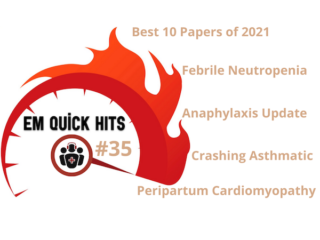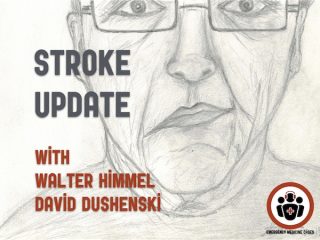EM Quick Hits 35 – 10 Best Papers of 2021, Peripartum Cardiomyopathy, Crashing Asthmatic, Febrile Neutropenia, Anaphylaxis update
In this months EM Quick Hits podcast: Ken Milne expertly walks us through the 10 biggest EM papers of 2021, Brit Long on a careful structured approach to Febrile Neutropenia to improve outcomes, Catherine Varner on how not to miss Peripartum Cardiomyopathy, Joe Nemeth on Anaphylaxis update and Anand Swaminathan gives us his approach to the Crashing Asthmatic...




